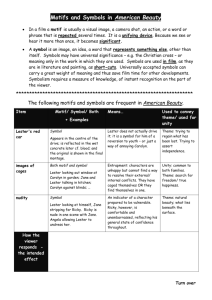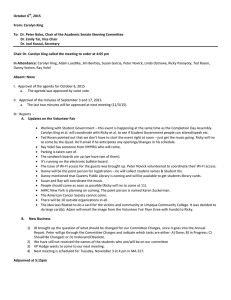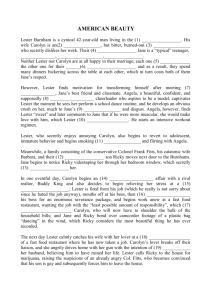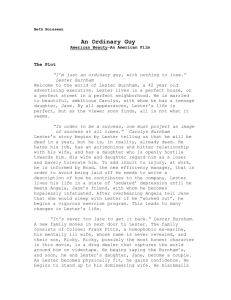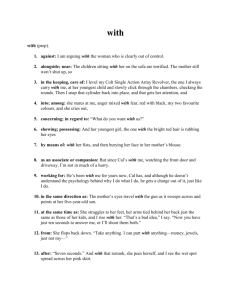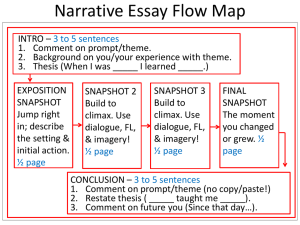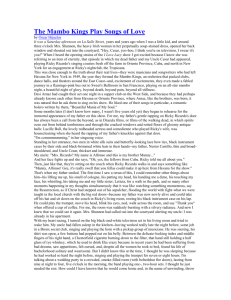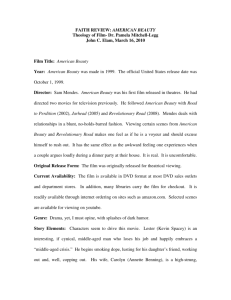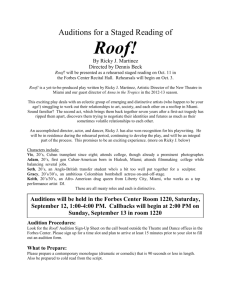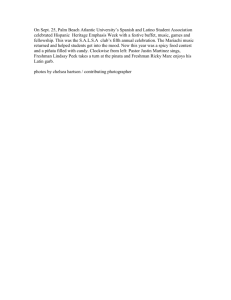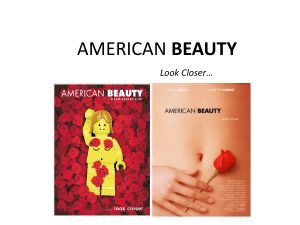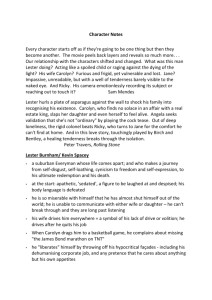American Beauty
advertisement
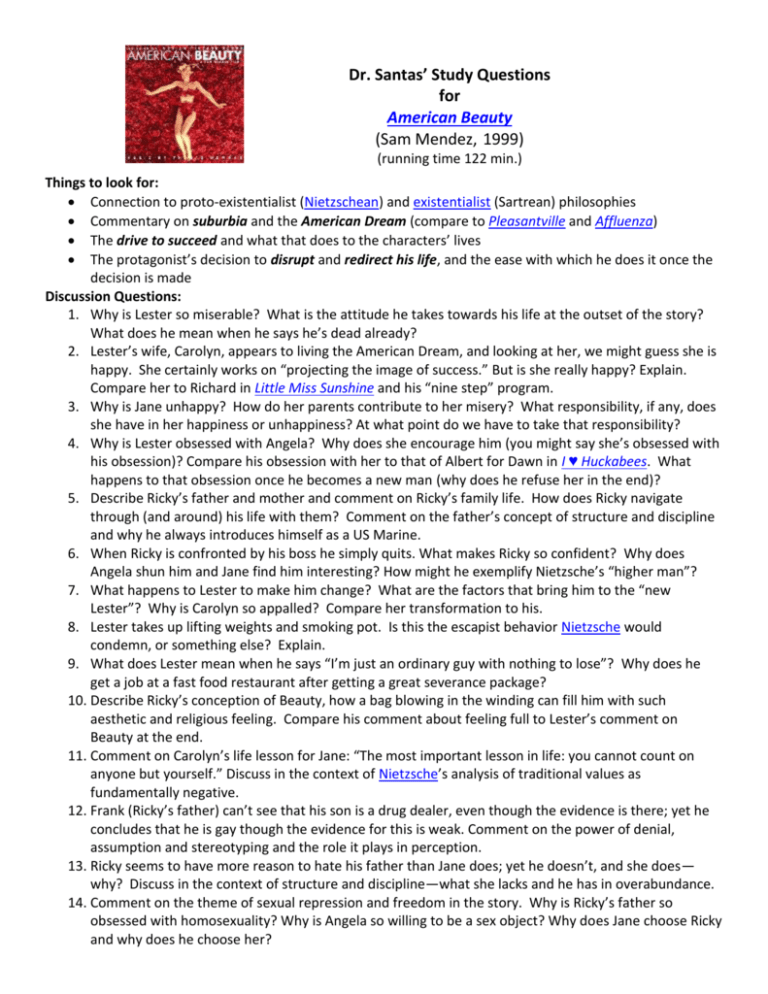
Dr. Santas’ Study Questions for American Beauty (Sam Mendez, 1999) (running time 122 min.) Things to look for: Connection to proto-existentialist (Nietzschean) and existentialist (Sartrean) philosophies Commentary on suburbia and the American Dream (compare to Pleasantville and Affluenza) The drive to succeed and what that does to the characters’ lives The protagonist’s decision to disrupt and redirect his life, and the ease with which he does it once the decision is made Discussion Questions: 1. Why is Lester so miserable? What is the attitude he takes towards his life at the outset of the story? What does he mean when he says he’s dead already? 2. Lester’s wife, Carolyn, appears to living the American Dream, and looking at her, we might guess she is happy. She certainly works on “projecting the image of success.” But is she really happy? Explain. Compare her to Richard in Little Miss Sunshine and his “nine step” program. 3. Why is Jane unhappy? How do her parents contribute to her misery? What responsibility, if any, does she have in her happiness or unhappiness? At what point do we have to take that responsibility? 4. Why is Lester obsessed with Angela? Why does she encourage him (you might say she’s obsessed with his obsession)? Compare his obsession with her to that of Albert for Dawn in I ♥ Huckabees. What happens to that obsession once he becomes a new man (why does he refuse her in the end)? 5. Describe Ricky’s father and mother and comment on Ricky’s family life. How does Ricky navigate through (and around) his life with them? Comment on the father’s concept of structure and discipline and why he always introduces himself as a US Marine. 6. When Ricky is confronted by his boss he simply quits. What makes Ricky so confident? Why does Angela shun him and Jane find him interesting? How might he exemplify Nietzsche’s “higher man”? 7. What happens to Lester to make him change? What are the factors that bring him to the “new Lester”? Why is Carolyn so appalled? Compare her transformation to his. 8. Lester takes up lifting weights and smoking pot. Is this the escapist behavior Nietzsche would condemn, or something else? Explain. 9. What does Lester mean when he says “I’m just an ordinary guy with nothing to lose”? Why does he get a job at a fast food restaurant after getting a great severance package? 10. Describe Ricky’s conception of Beauty, how a bag blowing in the winding can fill him with such aesthetic and religious feeling. Compare his comment about feeling full to Lester’s comment on Beauty at the end. 11. Comment on Carolyn’s life lesson for Jane: “The most important lesson in life: you cannot count on anyone but yourself.” Discuss in the context of Nietzsche’s analysis of traditional values as fundamentally negative. 12. Frank (Ricky’s father) can’t see that his son is a drug dealer, even though the evidence is there; yet he concludes that he is gay though the evidence for this is weak. Comment on the power of denial, assumption and stereotyping and the role it plays in perception. 13. Ricky seems to have more reason to hate his father than Jane does; yet he doesn’t, and she does— why? Discuss in the context of structure and discipline—what she lacks and he has in overabundance. 14. Comment on the theme of sexual repression and freedom in the story. Why is Ricky’s father so obsessed with homosexuality? Why is Angela so willing to be a sex object? Why does Jane choose Ricky and why does he choose her?
